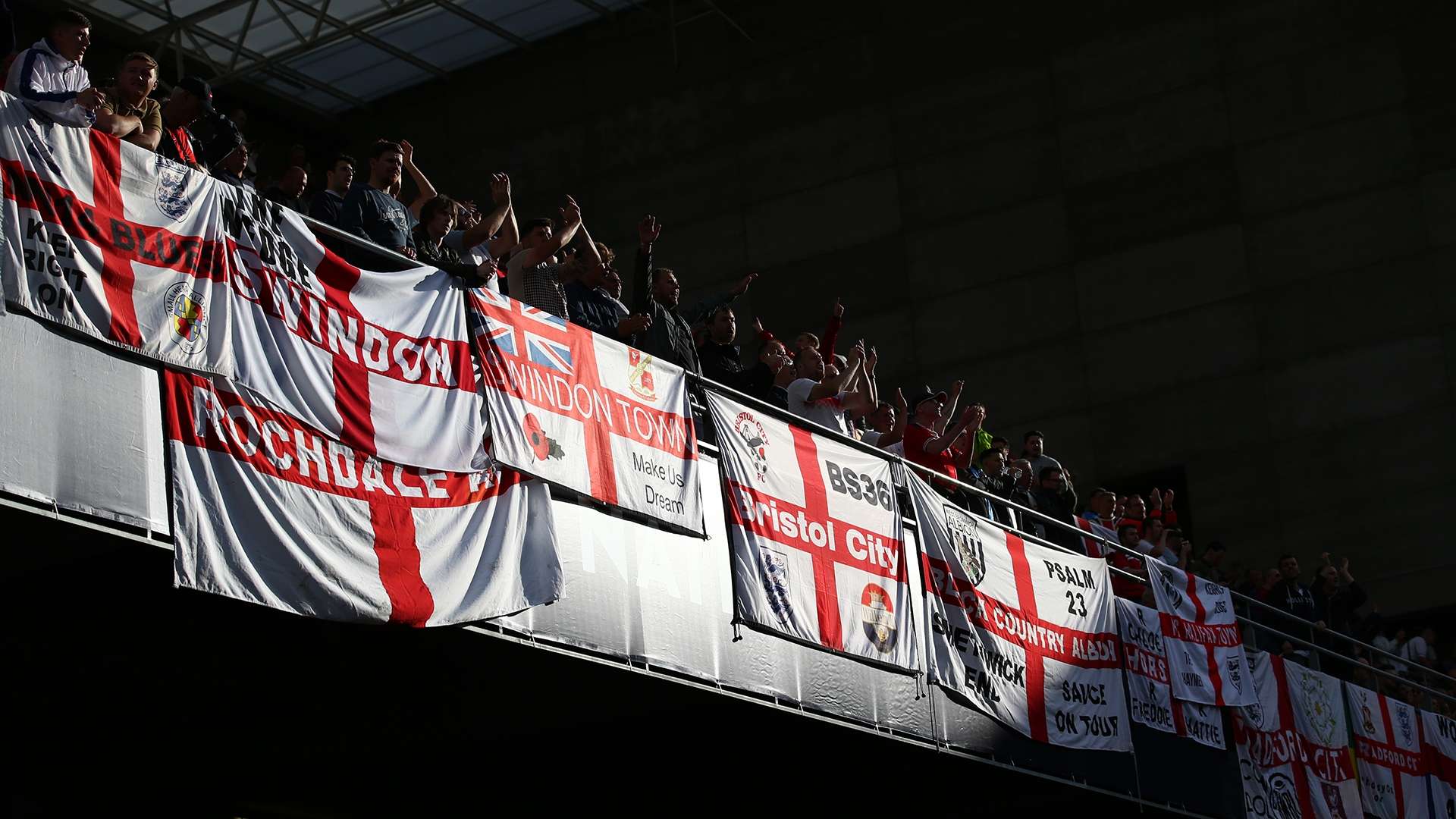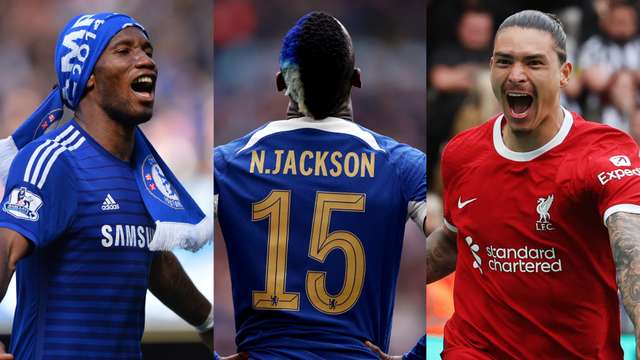A young man, no more than 19 or 20, typed on his smartphone with the text appearing on his scrolling LED app for everyone to see.
“Anyone got cocaine?”
It was just after 2pm, on the crowded train between Porto and Guimaraes, where England were due to play the Netherlands in the UEFA Nations League semi-finals later that evening.
This was a proper, old-school “football special”; the train carried hundreds of English fans towards Guimaraes, where they were disgorged at the tiny regional train station in front of a battalion of tooled-up Portuguese police and left to their own devices for the best part of five hours, before the game kicked off.
I have no idea if the young man got his cocaine.
Guimaraes residents had been fearing the arrival of the English. Since the hordes descended on Portugal for these two Nations League matches, there have been skirmishes involving fans of the team and local police, vandalism and clashes with locals.
It follows a wearyingly familiar pattern. Whenever England go out on tour, trouble comes with them. There are few other major nations with this kind of persistent problem.
Their reputation precedes them and locals in Guimaraes were perhaps thankful for the miserable downpour that came on Thursday.
Wherever England fans go, they intend to occupy whatever the closest approximation of a town square they can find.
There was one in Guimaraes, where the big St George’s flags hung between the trees. But you couldn’t find many English out and about boozing on the square. The weather had rendered it largely unusable.
The footpaths were slick underfoot. The skies teemed with a seeping drizzle. It was not the kind of weather that lends itself to standing outside drinking all day.
Fans instead were forced to break off into their own little groups. A cafe here, an alcove there, some even parking themselves in the entrance to a shopping centre.
Vast quantities of Super Bock were being put away nonetheless, but the congregational aspect of this particular England away day was to be denied.
It meant no repeat of what happened in Porto the night before. Small mercies.
There were still occasional flashpoints. Two fans argued among themselves over whether or not 'Ten German Bombers' was an appropriate song to sing at a football match. While they were doing so, another fan walked by and simply shouted “Tommy Robinson!”.
And with a depressing inevitability, the man himself soon appeared.
The footage of the anti-Islam activist and far-right politician punching a fellow fan from behind outside the ground in Guimaraes was a measure of the man; cowardly.
But that scene also should have alarm bells ringing within the Football Association. People like Robinson wouldn’t come to England away games unless they felt comfortable.
After he hit his compatriot, another Englishman could be heard to ask Robinson for a photo. Among the England travelling support, you’ll find Robinson’s people. That is the calibre of young man away trips are currently attracting.
Their no-surrender patriotism, embodied by the gusto with which they sing God Save the Queen, can be intimidating for anyone not on their side. Their St George’s crosses inside the stadium bear both the Union Flag in one corner and the Remembrance Day poppy in another.
“Where’s Paul Hayward?” one fan asked, scanning along the row of media seats, referring to the writer of a column in The Telegraph which criticised fan behaviour in Portugal and elsewhere.
The fans beside us booed their way through the Dutch national anthem. One, shoeless, was so drunk that he could only muster a half-smile to go along with his dead eyes. He wasn’t born when the team were playing in the vintage kit he was wearing.
They fell over seats, thudding the rows in front of them as they went over. They argued with stewards. And the demographic is the same. Young white guys, early-to-mid 20s who wouldn’t dream of doing it at home.
A check of the flags reveals the names of smaller teams, very few from the top six. You see the odd Chelsea one here and there but otherwise, inside the ground, Wolves were the best club I could see represented.
Because the top six are generally in Europe, maybe their fans have their fix of away days catered for at club level. They know how to behave and that explains the isolated incidents recorded throughout the Europa League and Champions League trips involving English clubs.
But these trips appear to be a tear up for the fans who don’t see Europe with their clubs.
Maybe this crew go to Wembley too but there is a serious disconnect between the England experience, at home and away. In Wembley, the FA has largely got what it wants.
At the stadium and on trains back, you see families, couples, dads and lads. There is very rarely trouble. No one is pissing on the street, no one is walking on the top of occupied cars, no fights.
It would be surprising too to see this kind of misbehaviour on a Saturday afternoon. But away trips are poisoned.
It’s not like this is new for England. There have been decades and decades of bad behaviour, from the 1980s right up to the modern day. Every tournament they have qualified for in recent times has featured a street battle of some sort or other.
But a big problem is that it has jumped generations. At a time when top level domestic football has become gentrified beyond all recognition, the worst traits of England’s thuggish past have somehow survived on tour.
There is very little interest in the actual football; a lot of them won’t even remember being at the game on Thursday, let alone who scored. It’s all about the piss-up.
They do things they would never do in a group of two or three. They never consider for a moment how it might feel for the locals watching them go about their boorish obstructiveness, or how their families might feel if it were to happen in their own town centres.
At the heart of it is a selfishness, a pursuit for consequence-free delinquency.
The manager Gareth Southgate can say “they don’t represent us” or “not real fans” all he likes but he’s wrong. They do represent England because that is the impression people are left with. If ten thousand England fans go to Portugal and 99 per cent behave themselves, there are still 100 people capable of wrecking towns and wrecking reputations.
England never asked for this kind of supporter, but they’ve got it. Denying it’s got anything to do with them is not going to help.
The fans complained after the game that they were left stranded in Guimaraes, as taxis and Ubers refused to stop and they were instead corralled into kilometre-long, 40-minute lines for the train in the pouring rain.
Even in this indignation there is a failure to connect the actions in Porto with the consequences here. Taxis will not stop, why would they? No one wants English fans in their towns and cities and who can blame them.
They come to drink, to tear it up. And off home they go without once thinking of what they leave behind.




